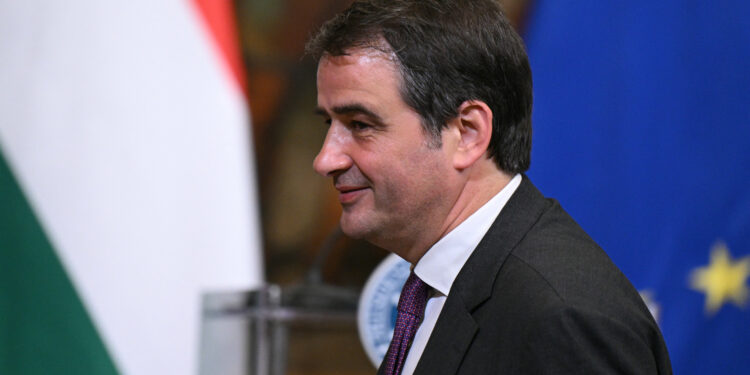Brussels – Regions and local authorities are not keen on losing the management of generous cohesion funds, allocated by the EU through the EU budget, if the famous cohesion policy reform for the next budget period (2028–2034) is implemented. Reform that, according to rumours, Commission President Ursula von der Leyen would like to entrust to her designated executive Vice-president Raffaele Fitto, who will be given precisely the portfolio to Cohesion and Reforms, and which would provide for a centralisation of the management of European funds, which would thus shift from the regions to the member states.
“The nationalisation” of cohesion policy —a cornerstone of European integration that, in essence, aims to encourage convergence in the socio-economic development of the different regions of the Union, supporting the less developed ones with more resources—”will only weaken our economies, our public services,” and the “European project” itself: this is the warning issued by the former chairman of the Regions Committee of the EU Parliament (the one that deals precisely with cohesion and regional policy) and currently Vice-chairman of the House, French Younous Omarjee (The Left), during an event focusing on cohesion policy in post-2027 held Wednesday (Oct. 2) at the European Parliament in Brussels.
Along the same lines were all the other speakers at the conference, albeit with distinctions due to different political affiliations. The Vice-president of the hemicycle in the Conservatives and Reformists (ECR) quota, Melonian Antonella Sberna, stressed that “cohesion policy has proven to measure up to the great challenges of recent years, has mobilized resources for the territories during the pandemic, and actively contributed to the achievement of European objectives and must not lose its long-term vision.” And she said she was “confident” about Fitto’s appointment to Cohesion, claiming that the fellow party member “is able to sit down and look for a solution.”
The non-paper signed by 134 European regions
The debate revolved around an initiative, signed by 134 European regions (including 12 from Italy) from 16 member states, to call on the new Commission for a cohesion policy that, in the budget period 2028–2034, is supported by an adequate budget and maintains a territorial approach, while respecting the principles of partnership and subsidiarity. Among the points most insistently reiterated by the speakers was also the need for greater flexibility and that of maintaining the model of so-called multilevel governance (involving various levels of government: European, national, regional, and local) since it ensures commitment and accountability on the part of all the actors involved and especially the beneficiaries of the projects financed with these funds.
According to Emil Boc, chairman of the COTER Commission (the counterpart of the REGI Commission within the Committee of the Regions), “the single market is a success because cohesion policy is a success”, and the latter “must remain the main investment instrument covering all regions even after 2027″ (currently, funds attributable to cohesion policies account for about one-third of the EU budget). The elephant in the room would thus be “the idea of having one (investment, ed) plan for each member state, since it cannot meet the different needs of different regions” and would thus end up destroying the very essence of cohesion policy.
Also according to MEP Giuseppe Lupo (PD-led vice-chairman of the Budgets Committee of the EU Parliament) “without cohesion the EU cannot be competitive” and, in line with what indicated in his report by former PM Mario Draghi, joint investments like NextGeneration EU must be strengthened. The Dem parliamentarian then threw a high-water mark at compatriot Fitto, announcing that they will “check his consistency” with the program outlined by von der Leyen at the confirmation hearings of commissioners-designate (scheduled for early November) and that the PD is also waiting for him in Italy, where the party of the now former minister of European Affairs is promoting a reform on differentiated autonomy that is “contrary to the cohesion policy” of the EU and “does not help the fight against inequalities.”
Another Italian member of the Social Democrats, Stefano Bonaccini, spoke of his own experience at the helm of Emilia-Romagna, using it as a warning against the centralization of cohesion policy: “If we want the cities and regions of the Twenty-Seven” to be able “to have their say and decide what the priorities of the territories are, we must avoid having the member states decide even the priorities,” he said. According to him, “one thing is to programme funding,” with respect to which “it is right that there should be a discussion between member states, the European Parliament and the Commission to avoid dispersion” of resources, but “as President of Emilia-Romagna I would never have allowed the Italian government—whatever it was—to decide what the priority of my territory was,” and therefore “we should ask Commissioner Fitto” what “conditions and sharing” he will guarantee to regional and local authorities during his five-year term in Brussels. He reiterated that “we need the cohesion policy to be adequately funded because the risk is even to see some of those funds taken away from us—and then everyone will be accountable for how they spend them” in front of their communities.
English version by the Translation Service of Withub





